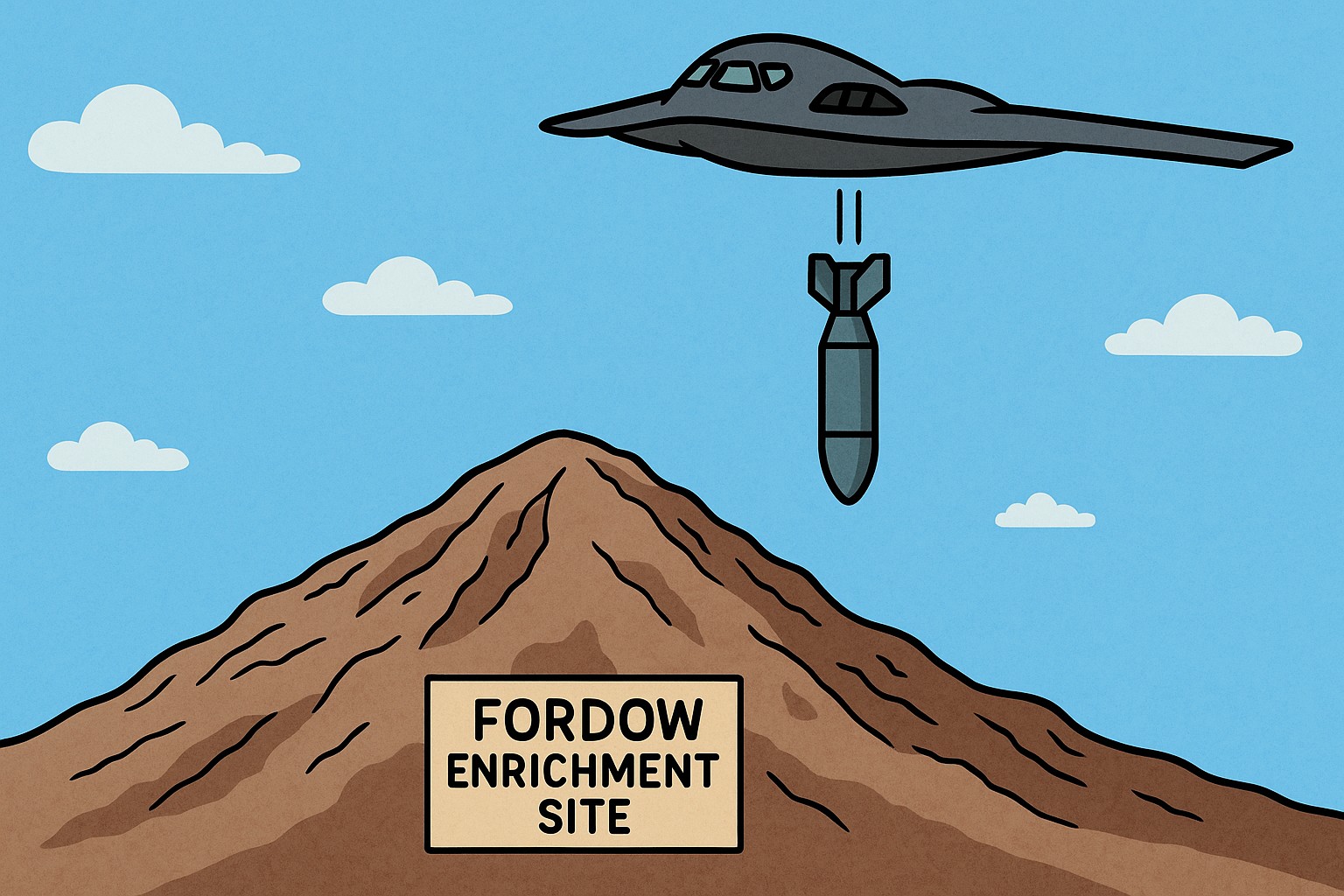Public choice theory and its methodological-individualist foundations can be illustrated with a currently hot question: Will President Trump order an attack on Iranian military assets?
It is, of course, not “the American people” who will decide; nobody has had lunch with him or her. (On this point, see my Independent Review article “The Impossibility of Populism.”) Although Mr. Trump wields extraordinary power, he will be influenced by his entourage, that is, mainly courtiers, minions, and cronies around him, and some individuals in his party’s remaining centers of influence. He will, if only intuitively, take into account the deep divisions on war issues within his voters’ base, as well as his pacifist or isolationist electoral promises. But his choice will still depend on how he analyzes or “feels” the situation. He may try or claim to protect the “US interest,” but such a thing does not exist since the 260 million American adults have diverse preferences and interests that cannot be arithmetically added up. Mr. Trump would not know how to think in terms of some rule-based common interest as conceptualized by constitutional political economy (an offshoot of public choice theory). The “US interest” is what he defines or conceives or imagines as such.
Like on other topics—the results of the 2020 election, TikTok, presidential pardons, Haitians eating American pets, the compromission of the Department of Justice, the further militarization of the police, the decentralization of American federalism, the effect of tariffs, the growth of the public debt, the well-being and opportunities of ordinary people, and so on and so forth—Mr. Trump’s decision will be influenced by his own interests as he sees them.
This does not imply that another strongman—perhaps a saint or wise man cognizant of the considerations above—could not be guided by other motivations. For example, he (or she, of course) could incorporate in his decisions a true concern for his fellow humans and for the future of liberty and a free society, but it would still be his conception of such concerns. This being said, prudence and analytical rigor strongly suggest to assume that rulers typically follow their personal interests.
Note also that the considerations above apply whether one believes or not that, in the present case, destroying the Iranian state’s capacity to acquire nuclear weapons is justified.
All these considerations confirm how dangerous it is to leave important state decisions largely in the hands of one individual, even if he is a genius anointed by 49.8% of American voters. The classical liberal and libertarian doctrine, developed over the last three or four centuries, defends the necessity of constraining and dividing state power.
******************************

One scenario for the Fordow enrichment site in Iran


READER COMMENTS
Atanu Dey
Jun 18 2025 at 5:38pm
Pierre:
Your essay brilliantly delivered what you promised — illustrate the methodological-individualist foundations of public choice theory — and did it concisely. I loves me another lesson on public choice whenever I finds it. Thank you.
(Typo alert: the population of the US is ~340 million, of which ~260 million are adults.)
Atanu Dey
Jun 18 2025 at 6:13pm
Prompted by the fine hand drawn (by AI) illustration, today I learned from Brave that —
Pierre Lemieux
Jun 18 2025 at 10:10pm
Thanks, Atanu, for spotting my error— a product of uncoordinated edits I did on my drafts.
Craig
Jun 18 2025 at 9:03pm
“Will President Trump order an attack on Iranian military assets?”
Derka derka, I mean, perhaps but this time? Somebody better ask if Iran can hit places like Marathon Catlettsburg. Maybe they can, maybe they can’t. I’m asking, can they? I don’t know, if anybody knows let me know, thanks.
Pierre Lemieux
Jun 18 2025 at 10:18pm
Craig: The problem, as I see it, is that one can wait until the bullet shot by a thug is close enough to see it or shoot as soon as the thug points his gun. But I agree that the problem is more complicated than that.
Mactoul
Jun 19 2025 at 12:02am
Does public choice theory deliver any insight that would surprise Machiavelli?
Recently a post appeared on how Adam Smith, by reckoning up pounds and shillings, showed that the American colonies were not a net benefit to British Crown. Question is, does it mean that American colonies were not in British national or public interest? Did Adam Smith showed that there exists a public interest?
When one criticizes a govt policy, doesn’t one presume that there exists a public interest which is harmed by the said policy?
Arnold Kling says that State consists of rules and roles. So, Trump is acting in the role of president. Of course, nobody claims that this precludes him from considering his personal interests. But this is far from saying that Trump is influenced only by his personal interests. Of course, you don’t precisely say so outright but the formulation you choose that Trump’s decision will be influenced by his personal interests (whatever they be) is rather vacuous in its weak form.
Scott Sumner
Jun 19 2025 at 1:13am
“But this is far from saying that Trump is influenced only by his personal interests.”
Is this claim still controversial?